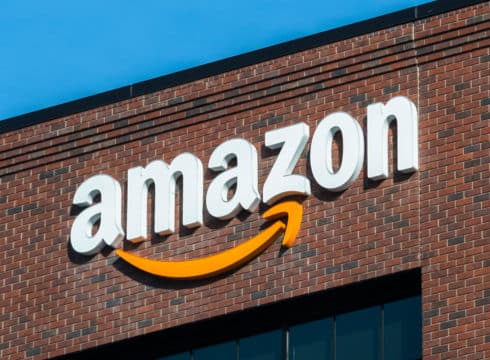The company to stop its food eretail in India post February 1, 2019
This comes in line with the FDI directive which prohibits online market spaces to sell affiliates’ products
Its plan to acquire stake in Kishore Biyani’s Future Retail might also be delayed
Inc42 Daily Brief
Stay Ahead With Daily News & Analysis on India’s Tech & Startup Economy
Ecommerce platform Amazon’s food retail arm Amazon Food will stop selling products through its website if the government does not modify the foreign direct investment (FDI) guidelines by next month.
This development comes in line with the FDI in ecommerce rule which directs that online marketplaces will not be allowed to sell affiliates’ products. The government directive is set to come into effect from February 1, 2019.
Citing unnamed sources, a media report has said that Amazon Retail India, which sells food products in Amazon.in, will stop doing so since post-February in order to comply with the government’s rules.
This would be a blow to the ecommerce giant’s plans to invest about $500 Mn (INR 3,546 Cr) on online food retail in India. Further, according to reports, the company’s plans to acquire a 9.5% stake in Kishore Biyani’s Future Retail might also be delayed.
In another step to leverage India’s retail market, Amazon had joined hands with private equity fund Samara Capital and acquired Aditya Birla Group’s retail chain More in September 2018.
“We remain committed to investing in India in a way that can work with the government’s vision towards the farmers and agricultural community but at present, we are still evaluating the PN 2 guidelines,” Amazon India spokesperson said.
In order to boost the offline players, the central government has taken a stricter view of the foreign direct investment policy for the ecommerce sector which directs that ecommerce players will not be allowed to sell products in which it owns a stake. Further, they will also not be allowed to mandate an online seller to sell products exclusively on its platform.
These new rules are expected to mostly affect Walmart-owned Flipkart and Amazon India who are backed by international companies and also depend heavily on sellers such as Cloud Retail, Appario and WS Retail to run their online marketplaces.
Speaking on the FDI policy changes in ecommerce, the US-India Strategic Partnership Forum (USISPF) had stated that the new regulations are regressive in nature and can also potentially harm the customers.
According to reports, the ecommerce companies including Amazon and Flipkart are also looking to seek an extension on the February deadline. Following this speculation, the all-India traders’ body, Confederation of All India Traders (CAIT) had written a letter to Department of Industrial Policy & Promotion (DIPP) secretary Ramesh Abhishek opposing the extension of the deadline.
The draft ecommerce policy, which as publicly announced in August by the Ministry of Commerce and Industry, is aimed at promoting the domestic players. Under the new rules, about 49% of foreign direct investment (FDI) may be allowed in inventory based ecommerce companies, allowing them to offer their own brands as long as they are made in India.
[The development was reported by ET]
{{#name}}{{name}}{{/name}}{{^name}}-{{/name}}
{{#description}}{{description}}...{{/description}}{{^description}}-{{/description}}
Note: We at Inc42 take our ethics very seriously. More information about it can be found here.


